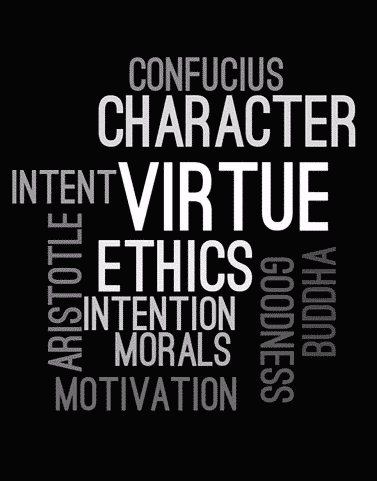By David Wangaard
No matter what your political persuasion was in the recent election, I have not heard anyone say, “Let’s do that again!” Maybe there are political junkies that enjoyed the whole experience, but many parents and educators just wanted to hide the kids. Most of us did not see the national election as a role model for the democratic process. While there have been rough elections in the past, the most recent displays of incivility encourage us to revisit the importance of ethics and character as part of the core function of education in a democratic republic.
It is impossible to say if the nation had embraced comprehensive character formation a generation ago, we could have avoided the ugliness in this election. However, we certainly do not want to stand by idly and allow the recent dose of incivility to corrupt our vision of political life. Elections and those we elect matter, and our political future depends on helping society affirm the importance of ethics and character for a flourishing culture. One component of a flourishing culture is the ability to resolve differences respectfully and ultimately work together to advance shared goals. Given the acrimony of the past year, we will need to work extra hard to see people of different views be willing to work together cooperatively.
 So what are educators to do? Nationally we have spent more than a generation laboring in our schools without a clear consensus or commitment to research-based practices in support of student character development. In my role as a Character.org National Schools of Character (NSOC) site evaluator, it is clear that the NSOC program only attracts a small fraction of US schools. And even among NSOC schools, it is challenging to have the majority articulate a research-based view of student ethical development and character formation.
So what are educators to do? Nationally we have spent more than a generation laboring in our schools without a clear consensus or commitment to research-based practices in support of student character development. In my role as a Character.org National Schools of Character (NSOC) site evaluator, it is clear that the NSOC program only attracts a small fraction of US schools. And even among NSOC schools, it is challenging to have the majority articulate a research-based view of student ethical development and character formation.
To advance a national vision for student character development, Character.org has published the research-based 11 Principles of Effective Character Education. The 11 Principles do not articulate one program for school implementation, but principles that have been demonstrated in research and practice to help improve school cultures, student academic performance, and positive character. The NSOC program was founded in 1999 and has subsequently recognized hundreds of schools that have demonstrated school-wide improvements and positive student character.
One teachers’ story captures the school culture impact of the NSOC program. During an NSOC site visit in New Jersey, a veteran teacher of 25 years told me, “I almost gave up on public education. I was frustrated with issues associated with student discipline and learning. This fall I transferred to my present school, and it has become a joy to be a teacher again.” This public school was only a few blocks away from where she had taught for over 15 years. The school was in the same district and enrolled essentially the same blue-collar socio-economic population. What was the difference between the two schools? The teacher’s current school had chosen to include character development in its strategic plan and participate in the NSOC process. The principal, teachers, staff, parents and students were all working together in support of the understanding and demonstration of positive character. The teacher noted, “This school and its focus on character have revitalized my vision for public schooling. This is a caring and responsible place to learn and a great place to teach.” The change in school culture had re-energized this teacher who provided clear anecdotal evidence of the benefits of educating with character and the NSOC process.
Space prevents a full introduction to the 11 Principles of Effective Character Education, but they are available to review online and include things like: (1) The school community promotes core ethical and performance values…, (2) The school defines character comprehensively to include thinking, feeling and doing; and (3) the school uses a comprehensive, intentional, and proactive approach to character development. The identification and instruction focused on core ethical, and performance values create a distinction between ethical and character education and some other positive youth development programs – Programs such as social-emotional learning and growth mindsets. This is not a criticism of these other initiatives, but a recognition that while they may serve to develop a complimentary set of skills and attitudes, they are not a substitute for ethics and character development.
 The unique role of modern ethics and character education is to help focus adults and students on the critical need to create and sustain an ethical learning community. As recognized by the founders of American public education, our democratic republic requires a society that is literate and ethical. How we have ignored the second dimension of this equation is a matter of much debate. As an example of this omission, I have observed that many teachers and students struggle to clearly define a strategy to address an ethical dilemma. A minority of those interviewed will suggest steps that include “make a good choice” with little reference to how the “good choice” might be defined. The core ethical values identified in the first principle of the NSOC program help students frame the outline of a good choice. Regrettably, core ethical values are not broadly recognized as an important guiding component of American public education.
The unique role of modern ethics and character education is to help focus adults and students on the critical need to create and sustain an ethical learning community. As recognized by the founders of American public education, our democratic republic requires a society that is literate and ethical. How we have ignored the second dimension of this equation is a matter of much debate. As an example of this omission, I have observed that many teachers and students struggle to clearly define a strategy to address an ethical dilemma. A minority of those interviewed will suggest steps that include “make a good choice” with little reference to how the “good choice” might be defined. The core ethical values identified in the first principle of the NSOC program help students frame the outline of a good choice. Regrettably, core ethical values are not broadly recognized as an important guiding component of American public education.
The opportunity offered by the recent election helps us all look in the mirror and ask if we are doing all we can to raise up a new generation of ethically literate citizens who seek to demonstrate positive character. Those of us working to advance research-based character education hope the election is an opportunity for reflection and recommitment to this basic purpose of education.
While the NSOC project has been cited as one resource, my agency The School for Ethical Education also supports free resources for educators to advance ethical reasoning and student character formation. Secondary teachers are invited to visit our Reasoning with Ethics blog page to learn about a strategy to catalyze ethical discussions using dilemmas in current events.
The need for our culture to advance positive student ethics and character is great and can be partially addressed by good instruction and practice in schools. While educational psychologists still debate specific mechanisms of moral character formation, there is wide spread agreement and research support for the 11 Principles of Effective Character Education. Students, parents, teachers and educational leaders are encouraged to embrace these principles for the character development of our future political leaders.
David B. Wangaard, Ed.D., is the President and Director of The School for Ethical Education (SEE) in Milford, CT. SEE is a non-for-profit education agency with the mission of providing K-16 teachers and students strategies to put “ethics in action to create character. For more, visit https://ethicsed.org


